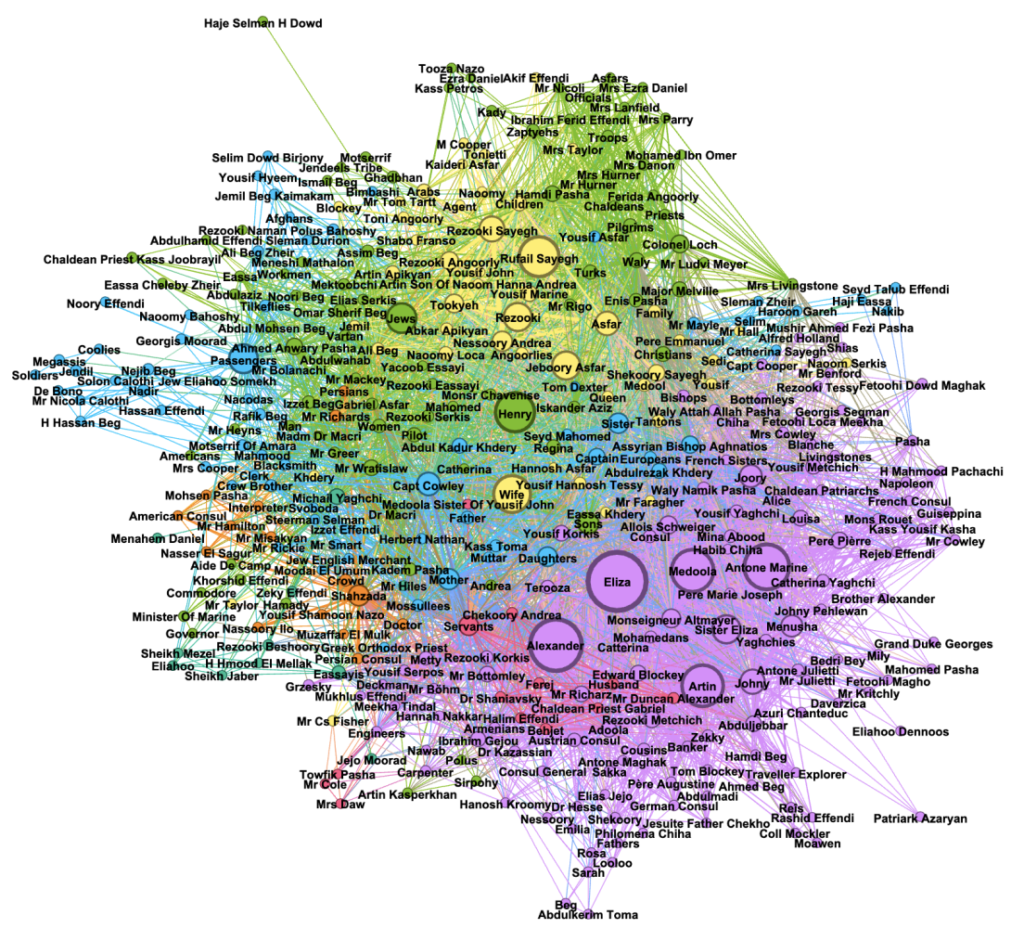Historical Preservation
Historical preservation lies at the forefront of the project’s goals. This work includes the Svoboda Diaries and other related texts. Current work on these texts involves transcribing digital scans of the documents, proofing to ensure accuracy, and making them available in digital form.
In addition to transcription, interns engage in a variety of historical preservation activities including the development of an interactive digital map showing Joseph Svoboda’s travels along the Tigris River, the creation of a virtual image gallery on the project website displaying images relevant to the historical period, and the development of our interactive diary viewer, which enables website visitors to explore the diaries with the scanned, handwritten images alongside the diary transcriptions.
Research and Education
The Svoboda Diaries Project also engages in research and pedagogical activities, including qualitative interview research to better understand scholars’ work practices and how they use historical material, including the resources that we develop. We have recently also begun collaborating with course instructors to integrate the materials preserved by the lab in the classroom.
The research activities of the project include the use of natural language processing, data science, and visualization methods to explore historical questions. For example, this may include analysis of the Svoboda Diaries to learn about cultural and social context, as well as exploring how the language of the diaries reflects the ways that Joseph Svoboda, the diary writer, regarded social status, race, ethnicity, and gender. We also study Joseph’s mentions of cargo and passengers to better understand the nature of economic life and trade along the Tigris River.

Expanding Partnerships
The Svoboda Diaries Project has set several critical goals to achieve its future vision. The project has been expanding its research endeavors through forging international partnerships and connections, and plans to continue this in the future.
We also hope to connect with Iraqi research institutions, like the National Manuscript Museum in Baghdad. Partnering with the Iraqi National Manuscript Museum brings forth the possibility of creating new diary scans to complete the preservation of the corpus, a task paramount to the preservation of endangered materials in Arabic and English. Ultimately, we hope that these activities can continue to support research on nineteenth century Ottoman Iraq and surrounding regions.
The Svoboda Diaries Project continually adjusts its future directions based on the interests of all team members and stakeholders, including a diverse team of students, faculty, collaborators, and users from all over the world.

References
- Chen, Annie T, and Camille Lyans Cole, “Reflexivity in Issues of Scale and Representation in a Digital Humanities Project” (presentation, 6th Workshop on Visualization for the Digital Humanities, October 24, 2021) ArXiv.org. https://doi.org/10.48550/arXiv.2109.14184. ↵